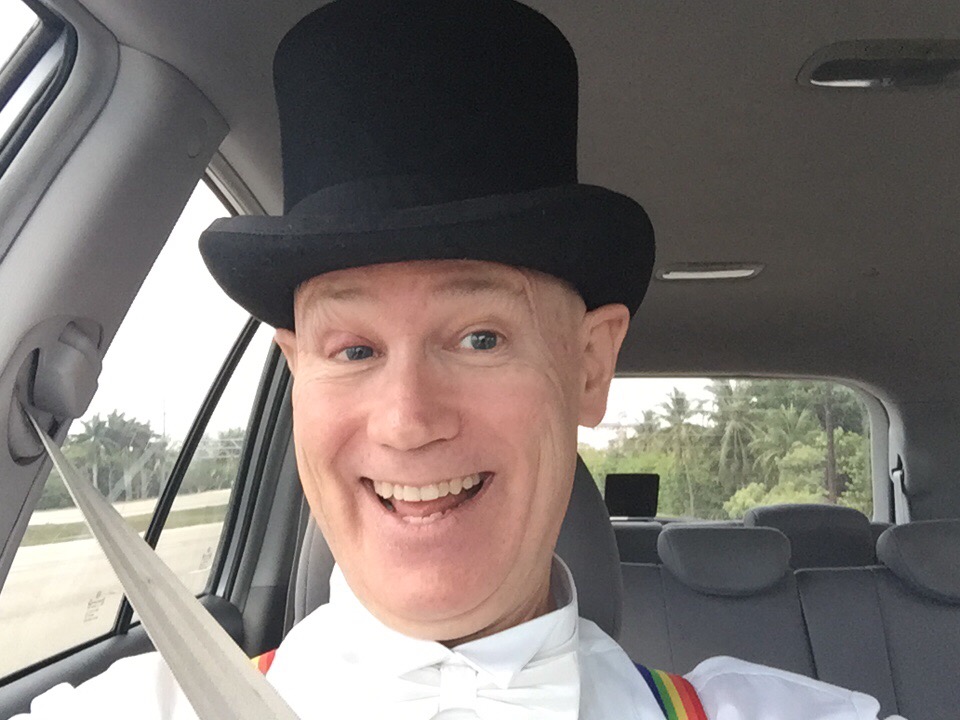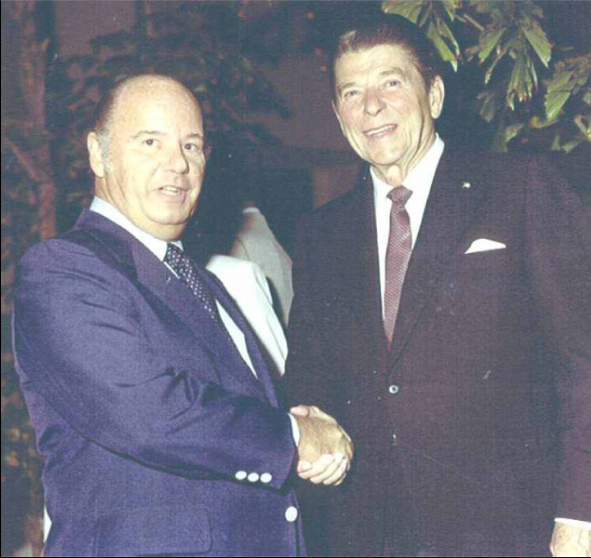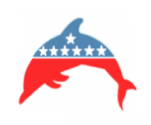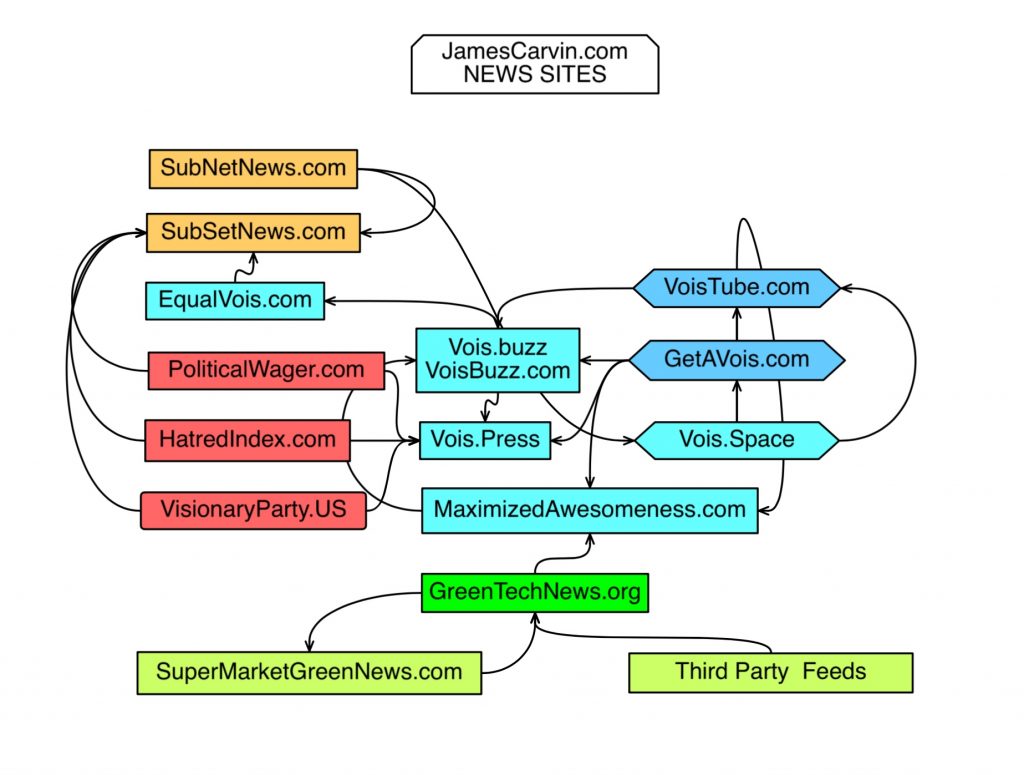I haven’t updated my resumé much because I haven’t planned on applying for work anywhere for a few decades. I’m drawing Social Security now. I don’t plan to retire until I’m a centenarian though. I’m still as much of an entrepreneur “wannabe” as ever and I come with a background that deserves some explanation. So, I’ll offer a curriculum vitae, blended in with some explanatory detail, to help you make sense of it.
Before I start, I don’t want it to look like I’m too good to work a regular day job. I actually love hard work. The last three jobs I had were for trucking companies. I took a two year hiatus from obligations at home after my sister and brother died, and saw the country for the first time – from an eighteen wheeler. I got caught up on my bills at that time and had a good cry. I’ve had many jobs throughout my lifetime.

You may know that my wife, Lisa, stayed home while I was trucking. Thirteen years into our thirty plus years of marriage, she had a stroke that left her paralyzed in her left side. As her caregiver through the years, it wasn’t easy leaving home six weeks at a time, but my business plans weren’t working out and Uber and Lyft were wearing out my vehicles. I’d been seeking funding to get some apps I’d designed built -Vois Technologies. I was unable to pay the developers without funds. I was unable to obtain funds without developers. Click here to see the many Vois projects I have in store down the road.
I’ve pivoted a lot in my life. The “Ghost Machine” is an example of one of the projects I worked to get off the ground. Those were the years from 1998 through 2013. In the case of the Ghost Machine, I had some of my own money to begin it with at the turn of the Millennium, and again by 2013 but again, the project was never funded – not by any third party. Just me. And that wasn’t enough. Click here to read about the decades I spent working on the Ghost Machine and learn what it was.
As much as I’ve wanted to be an entrepreneur all my days, I’ve had a few strikes against me. My education was in the wrong field. I didn’t have money. I didn’t have a team of helpers. I learned things the hard way, mostly as an adult. I had advantages when I was very young. My father was a wealthy business man. I was white. I was a man. I had privileges. My father encouraged me to be a musician and I graduated from the University of South Carolina with a music composition degree in 1980. That was right when he started to lose his money.
If Dad had lived longer and not gone bankrupt, he would have likely invested in my music studio. I wouldn’t have had to pay for and operate it by myself. I worked in banking a few years and then took a job at the Postal Service and invested in music and recording equipment with what I could save or get on credit. Dad encouraged me to become a Catholic priest. I enrolled at St. Vincent de Paul Seminary 1982-1986. He wanted me to write some beautiful new church music. I was up for that. But I had no orchestra to play it and no venue to earn from it, nor did the thought occur to me to profit from religion. So I led worship in some churches and groups for a while and that was about it. No major recordings ever came from my little back door studio, called Wisdom Studios. I thought maybe when I finally did retire, I could put some time into music again. I set my mind on retirement at a very young age for that reason.
I was serious about religion, enough to forge my own path. My mother wanted me to be Presbyterian, like her. My dad wanted me to be Catholic, like him. A girlfriend I had wanted me to be Hindu, like her. I read a lot about each. I learned to meditate, and then I learned to pray the Catholic way. And when I met another gal I liked, she taught me to be charismatic, like her. Then when I finally did get married in 1990, my wife wanted me to be Pentecostal, like her. I just kept reading, and wherever people seemed to be right, I grew. From 1991-1995 I completed my Masters degree at St. Michael Academy of Eschatology. Their accreditation was with something like the Kentucky School of Accreditation. It was an Orthodox Seminary in a controversial jurisdiction, led by a controversial bishop. Not many people have Masters degrees in eschatology, for whatever that’s worth. Neither do they have mission letters from bishops commanding them to preach the message of Elijah to Protestants.
How did that happen? I was very open-minded about Biblical interpretation. I asked questions and rarely condemned the other side in any setting. Perhaps I seemed too Protestant for my Orthodox bishop to consider me for a mission within Orthodoxy. If I had supported one institutional view or another, I might be able to use that degree to get a regular job. I was open to Biblical criticism. I was the kind of person that might give Bart Erhman and the documentary hypothesis a chance. The only place something like that would serve is in liberal academia. I also loved and taught first through third century Christian history as an adjunct professor at the seminary.
Whatever, the right interpretation of the Bible may be, or of other Scriptures, I had developed through the years a different approach to theology, which I came to call “Pamalogy.” Pamalogy is more of a philosophical system than a religion. It is based on logic, rather than text or tradition. Pamalogy is not to be confused with “Palmology” – which is the reading of palms. It has nothing to do with that. Pamalogy is the philosophy of awesomeness, or “awesomeology.” What would it mean to maximize awesomeness?
This is not a treatise on Pamalogy. I’ll simply say here that there are two sides to that question. On the one hand, it means doing the best we can with what we know we have. For instance, it would be good to have a world full of art, free of suffering, made sustainable for abundance, enjoyable, full of love, respect and justice and so on. On the other hand, it means something beyond what we do. It is the best of all possibilities. That type of maximized awesomeness is a God-sized aweseomeness. It is divine perfection. For perfection in the divine sense to be real, no good possibility can be lacking. No bad possibility can be part of it. It requires as many Universes as that takes – a multiverse. Nothing in reality adds to maximized awesomeness that maximized awesomeness does not possess of itself already. God contains a Multiverse.

An astronomy is a Universe. A “Poly Astronomy” is a Multiverse. Pamalogy is short for “Poly Astronomically Maximized Awesomeology.” For awesomeness to be maximized in divine perfection, it has to be poly astronomical. Otherwise, every good possibility will not exist within it. Note that I did not say astrological. I said astronomical. Pamalogy is not astrology. Pamalogy is not palm reading. Neither one. It is the philosophy of awesomeness. It believes that for awesomeness to be maximized, in the divine sense, it has to be poly astronomical. Pamalogy is poly astronomically maximized awesomeology.
There are a lot of people who think that perfection is possible without a Multiverse. A Pamalogist thinks a Multiverse is a necessary truth, though a multi-dimensional Universe might amount to the same thing. I won’t explain what logic brings us to that conclusion right here. Suffice it to say for now that given the fact that I had developed a philosophical system, I put some thought into what I should do about it. To be realistic, who cares about philosophy nowadays? I risk losing a reader’s attention just telling you about it.
But there was something I discovered. I found Poly Astronomically Maximized Awesomeness to be much more than a thought exercise. It was a source of encouragement to live by and dwell on. It oriented my worship. It helped me confront my challenges. It helped me cope when considering loss. It gave me a sense of what I was and why I was here. And finally, after thinking on it at great length, it gave me a vision for the Pamalogy Society.
I have to keep this brief. The two sides of what it means to maximize awesomeness I call the metaphysical and the axiological. People tend to be set in their ways when it comes to metaphysics. They have their religion. They don’t care to hear the opinions of others. Maybe a few do. That’s all. That’s why providing details about Pamalogy as theology is a low priority. For now, my focus is on the axiological side. “Axiology” is the philosophy of what is worth doing or having. “Axios” is the Greek word for “worthy.” Philosophers break axiology down into ethics (what is right or wrong) and aesthetics (what is beautiful).
To maximize awesomeness in the sphere of axiology is to seek to maximize beauty and goodness in the world. How would anyone go about that? Well, I don’t know how you would answer that question, but I can tell you a bit more about my own journey and what I want to do in founding the Pamalogy Society but before I do, I need to take a step back.
In 1981, I took a job as a Savings Counselor at a savings bank. Musicians were supposed to be good at math and I was. But it was precisely because I was good at math, and because I was a creative person, that instead of appreciating the bank, I quickly realized it epitomized a certain inefficiency we have in our present economic system. We spend a great deal of time exchanging pieces of paper and altering balances in accounts, but none of that work at counting what we have and moving our accounts from place to place or instrument to instrument produces any direct value. It creates no music. It produces no album. You can’t eat it. You can’t drive it. You can’t wear it. It doesn’t give you a massage. It doesn’t build a house you can sleep in. It doesn’t deliver your groceries. All those things, including being served a quick burger and fries, would be direct products or services. Nothing at the bank is that.
Now you may be saying that the widgets and services you can buy with your money are a good thing to have more of, and that is true. If you can increase your money, then you can buy more of that stuff. But the money itself is not a direct value. There were ten people working at the branch office of the bank I spent forty hours a week working in. Combined, that was 400 hours of human work wasted every week, not creating any direct service or product. I then took an inventory of various types of businesses, counted their employees, separated types of jobs that did produce direct products or services from those that don’t, and estimated that less than 30% of workers in America directly produce any actual goods or services.
Well, this was interesting. My father was not only Catholic, he was a Ronald Reagan supporting conservative. He and I had some differences of opinion about all of this. I estimated that if there was no such thing called money, or anything else to exchange, if we simply gave our time to producing goods and services directly, we could increase our productivity by 230%. We could give everything away to whomever had need for free. We also wouldn’t have to worry about the federal deficit, because there would be no such thing as money. And we wouldn’t need banks. We could just cancel all debts.
Dad equated my idea with Communism. Dad’s world was very different than mine. The cold war was still going strong. Soviet expansionism seemed like a real threat. Dreams of a society without any form of currency or exchange always turned into tragedy. Property owners were violently overthrown. Socialist countries never enjoyed abundance.

I was never a Marxist. Apparently, Marx looked forward to the end of belief in God. Apparently, Russian and Chinese Communists thought that belief in God was a form of insanity. Marx had ruined my idea with a philosophy of revolution that called on the working class to hate the owner class. I couldn’t see, at that time, how we could peacefully transition to a money-free society the way the Soviets and their proteges were doing it. Dad also made the point that people need incentives to work, or they won’t. I wondered whether that might be offset by the 230% increase in productivity that would result, but the deal-breaker for me was the violence of Communist revolution. I wanted no part in it.
Then there was the bureaucracy. How do you determine what the people need? And the paper. We didn’t have computers to manage this back then. How would we manage it? Those were the days before the Internet. But when the Internet did come around, another idea formed in my head. It solved all of these problems. I called it the Human Availability and Needs Database System (HANDS).

The HANDS community members would join a web site. Then they would vote on what types of jobs that produce direct goods and services. Their vote would determine what was the most vital and in demand. They would just tell the system what they needed and what jobs they were capable of doing. The incentive to work at jobs that were in high demand would come from the desire for privileges – comparative luxuries. The members would consider types of products and services that might be considered luxuries and vote on what level of privilege should be required to have access to them. For instance, it would be a luxury to live in a rare property on the ocean. It would be a luxury to have three cars for a family of two. It would be a luxury to go to a fine restaurant every night. Luxuries are scaled from 1-100 by voters this way. Things that were hard to produce or limited in quantity, would be obtainable only to those who did work that was vital and in high demand. Together, the HANDS community would decide upon and create a many tiered system of privileges that could be earned by choosing specific types of work that produced direct goods or services. It might be considered an equal opportunity multi-class system.
It would all remain theoretical until the day came that there were enough members in the community to support an actual resource-based economy, where they could contribute their own means of production and resources and then they would sign an agreement of commitment to launch it on a certain date. The computer network and algorithms would eliminate the bureaucracy. Rights and privileges would be earned as determined by the people. Money would no longer be an object of stress for the many in lack. Resources would be managed sustainably.
Okay. So, who cares? Why, in sketching a Curriculum Vitae, am I telling you all this? Well, I think it is important for people who might consider doing business with me to know who I am. I might hold some conservative views but I’m not a libertarian. Just as my religious perspectives are unique to me, so are my economic and political ideas. Ready for the next item on my resumé? I ran for president of the United States in 2016 as a write-in candidate.

I didn’t get on the ballot, so none of the votes for me were officially counted, but I wasn’t trying to win. I was trying to bring attention to the Manifesto I wrote for a new political party, the Restoration Party, and I achieved that objective. I was featured in the Tallahassee Democrat as the Uber driver running for POTUS. I estimate I got about 200 votes from people fed up with the Democrat and Republican parties both getting us into endless wars, not getting the budget under control, and not dealing with a very dirty bureaucracy that was serving itself, and not we, the people. Donald Trump seems to have agreed with many of my ideas about political corruption and media corruption. He took a ride on the same massive populist movement that I sensed existed, but obviously, he is no supporter of a money-free economic system, like me. He might call that socialism.
Subsequently, a lot happened. Trump was accused of having ties to Russia. He was accused of being a racist. His supporters were accused of being white supremacists. These were interesting accusations. I noticed how politically charged the news had become. It was very emotional. People weren’t being reasonable. BLM and Antifa rose up. Fact-checkers started telling us what to think on Facebook. Twitter, YouTube and Google suppressed opinion that they opposed, claiming it was for public safety. Finally, Trump supporters insisted that the 2020 election was stolen while predictable media outlets insisted there was absolutely no truth to those kinds of allegations, culminating in the events of January 6th, 2021.
I began by asking about maximizing awesomeness. In the real world, we are dealing with a sick political system, one that needs to be repaired. If we are going to suppress news because it doesn’t square with fact-checks, what have we done to fact-check the fact-checkers to be sure that the fact-check organizations are not merely serving political agendas? What is to stop the Poynter Institute from corruption and government influence? Many of the fact-checks concern elections. If a majority of the American population has lost faith in the news, in fact-checking, and in electronic voting systems, then I am likely to see the very type of violence in the 2020s that I wanted to avoid in the 1980s. Violence is not awesome. The restoration of truth and trust – that would be awesome. A restoration to better journalism – that would be awesome.
For this reason, I think the first endeavor the Pamalogy Society should support is a fair way to fact-check, fact-checks. I’ve invented a platform for this called the CounterChecker and I’m seeking funding for it at this time. But to avoid the old problem of not having funds to develop my invention, this time I’m taking a different approach. This time, I will seek grants and donations from individuals, corporations and foundations to the Pamalogy Society for the development of the CounterChecker, as an incubator. The Pamalogy Society will continue to raise funds for worthy projects and its first target is the world of journalism.

There’s some method to all of this in terms of the maximization of awesomeness. Better journalism means the creation of platforms of communication for the Pamalogy Society itself as a founding sponsor. Founder level privileges on media platforms will serve to help future projects that the Pamalogy Society supports. I believe this method of raising funds and creating platforms of communication will be a good mix. I expect the Pamalogy Society to have its 501(c)(3) status very soon.
I am doing this while finishing up yet another degree. I’ve been attending Arizona State University and should have my degree in Interdisciplinary Studies, with concentrations in Organizational Leadership and Philosophy by December 2022, at the current pace. Last semester, I had my professor review the business plan I’d written for the CounterChecker for a directed study course for credit. I would love to Zoom with interested parties as I begin this endeavor, to share what I’m having the developers create. I’m looking for a diverse board of directors. I don’t want political agreement on the board.
Personally, some think I’m far to the left. Others think, because I’ve defended Donald Trump on some issues, that I’m far to the right. My personal political perspectives are as wide as the ocean, but that is irrelevant.
One of the unique features of the CounterChecker is that it will depend on disagreement to make it work. I may have had disagreements with my father growing up, but much of what he said was highly valuable to me and stays with me to this day. We need to surround ourselves with people who have very different views than our own. The CounterChecker itself works by posing ideologically different teams against one another. There’s no better critic than someone who is literally debating you. These will be deliberately oppositional teams of about ten to twelve countercheckers each – one team on the left and another on the right – fact-checking one another’s fact-checks and counter-checks. It will achieve a level of depth and comprehensiveness that fact-checking does not currently provide. It will restore trust in fact-checking as a whole through its thoroughly dialectical approach. I consider it vital to fixing a presently very broken system.
